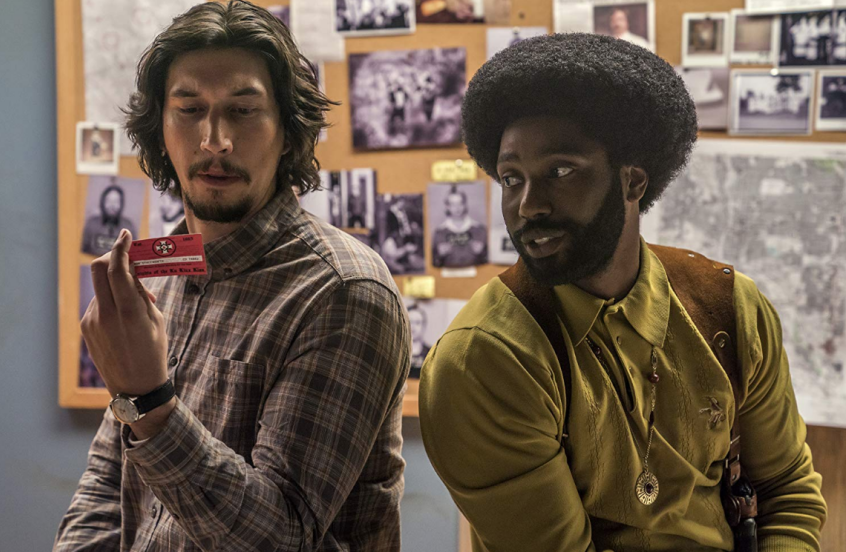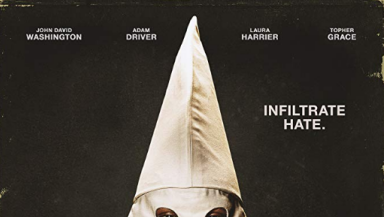BlackkKlansman trades in stereotypes. As it follows police officer Ron Stallworth going undercover to infiltrate a Black Power group, it also sees him falling in love with the feisty radical leading it, just as predictably as if his name was Ryan Gosling. Yeah, it started out as a job, but then I fell for you! It's not the only trope. Racist, toxic masculine American abuse from older cops, the inevitable comeuppance for the worst of them and redemption for the casual bullies.

The tropes keep coming, thick and fast enough to keep a mainstream, unwoke audience munching on its popcorn while the message of the movie slips sneakily up their coke-straws and into the bloodstream. That's why you need to get your friends to watch the film. Lure them in with the fun parts. Let the movie do the rest.
Stallworth, his department's first black cop, isn't primarily interested in the Black Power movement. Almost by accident, he infiltrates the local chapter of the Ku Klux Klan. Cue the laughs – and there are many of them – but Blazing Saddles this ain't. The stereotypes BlackkKlansman plays with are not the classics of lazy (even liberal) racism. No whiteface for Lee. Not a single comedy-violent elderly black woman and a striking absence of "Sheeeeeit!" It would be easy for a film like this, even with its ideological ambitions, to become part of the problem in trying to get people to address it. Praise God Spike Lee made it. It may reference the blaxploitation films of its era, but it never falls into their traps.
Instead, tropes are used and tropes are destroyed. The longsuffering Klan wife, with her patriarchally thwarted intelligence and apple pie sweetness is not a hero, because not all oppressed people are good. The black couple at the heart of the film's romantic storyline do not agree on politics, because black society is every bit as diverse as white society. Stallworth's captain is not universally racist and unreasonable, but neither is he interested in challenging the status quo. Because that's what racism is. Banal. Lazy. As invisible, most of the time, as it is violent and oppressive.
And there is violence aplenty in the film. More alluded to than fetishized for our enjoyment. This is not, despite the clever marketing, first and foremost a comedy. Harry Belafonte, as an elder statesman of the Black Consciousness movement, simply speaks about an horrific incident and the old rule of 'show, don't tell' is burned to the ground. Moments of tension are tightened as expertly as in any of the great deep cover actioners, and while there is enough resolution to satisfy, a late gut-punch leaves one with a desire to do something rather than a sense that all is well.

BlackkKlansman should be a blockbuster. Big names, a buddy-cop dynamic and big laughs in a film that feels sadly contemporary despite its 70s setting should have guaranteed this. But it is, ultimately serious. Good. So don't tell your friends that.
Tell them it looks fun. Lead with the central idea of a black man undercover in the Klan. And take them to the cinema – even if you have to travel quite a bit to find one showing it.If you're white, it's worth watching while there are black people in the room. That aspect will help you realise your privilege a little more, notice when you're laughing and some other people aren't.
BlackkKlansman is the good fruit of the Black Lives Matter movement, a cleverly pitched way in for those who don't love being hectored and whose hearts are open to repentance and to action. As Christians we should watch it, yes. But we should take some people with us on the journey.
Jonathan Langley is a freelance writer and works for a Christian mission and development agency.













